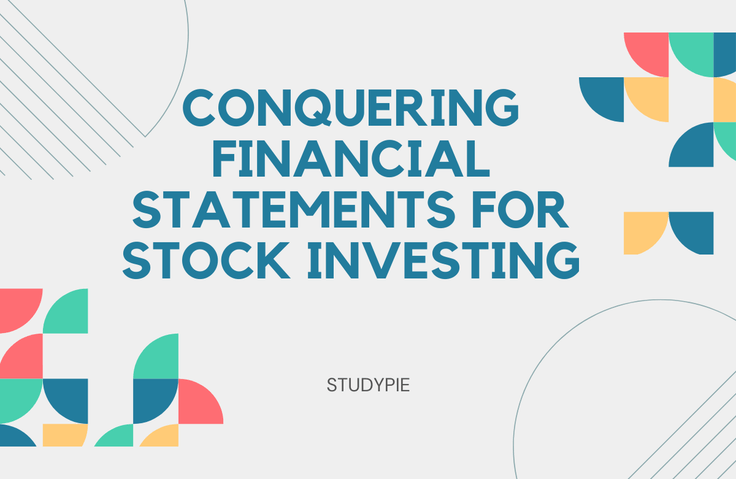 (5).png?w=420)
매일 30분, 2주 | 비전공자·문과생을 위한 파이썬 기초
스터디파이
꼭 필요한 파이썬 기초만 빠르게 배우고 싶은 분들을 위한 강의입니다.
입문
Python
This lecture explains financial statements so that they can be easily used for stock investment.

You will learn the basics and application of financial statements and gain a deeper understanding of the companies you encounter through various channels.
You will escape from being a novice who is swept away by various information and gain a solid foundation and confidence in stock investment.
You can see at a glance everything from the company's performance and growth potential to the company's overall flow and market conditions.


You can't value a company without looking at its financial statements.
The number of individual investors entering the stock market is at an all-time high. In this era of low interest rates, traditional investment methods like savings and real estate will have limited potential for generating profits. Fueled by these individual investors, the KOSPI achieved the highest index growth rate among the 20 major economies in 2020.
But will all individual investors entering the stock market this way truly profit? Is it easy to make money in a market "full of experts," swamped with corporate PR-heavy news and uncertain information from acquaintances? Financial statements are the "real information about a company" that protects your money in the jungle-like stock market. They are essential stock investment information, helping you discern between "hidden gems" that are worth investing in and "fake information" that can be dangerous if you're swept away.


But there is a world of difference between reading these three chapters and not reading them.
How do you shop? Do you just blindly buy without checking the price, considering the quantity or quality, or even finding the lowest price? Of course not. Even for a 50,000 won item, you'll check shipping costs and delivery times to get a good deal. But in stock investing, where millions of won can easily fluctuate, spending your money based solely on price (charts) without understanding product information is incredibly risky. But you don't need to know everything. Just like checking product information before shopping, you can simply review the financial information necessary for stock investing and apply it to your investment decisions. Your money is precious, and time is always limited.


This course is tailored to the average office worker who has a lot to do but little time.
To avoid getting lost in complex terms, we'll explain financial statements from the perspective of an ordinary office worker. Financial statements, which can be complex and difficult to prioritize, are easily interpreted and read according to priorities. We'll compare the company's status confirmed in financial statements with actual stock charts to identify correlations and identify unusual situations. The book is structured so that anyone can understand, even those unfamiliar with accounting or numbers.



How did a non-accountant become a financial statement expert?
While working as a public relations team leader at the Korean Institute of Certified Public Accountants, I encountered financial statements. The economic reporters I met daily asked me about the ever-changing state of companies' financial statements from the perspective of their readers, the office workers. Training in "how to easily convey practical information from financial statements" became a natural fit, and that experience led to my teaching financial statement lectures to economic reporters.
Buoyed by the positive feedback that even the average person can understand them, I've been sharing financial statements through various books, media contributions, and lectures, earning myself the nickname "The Man Who Reads Financial Statements." I'm not an accounting major, but rather a working professional who encountered financial statements. Therefore, I understand the challenges and questions they pose to busy professionals. I'll work with you to address your concerns from a shared perspective.




Stocks are not a type of investment where skills are automatically developed through experience alone.
For investments that don't fail
We will inform you of the financial statements you absolutely need .
Hello. I'm Seunghwan Lee, the man who reads financial statements.
They say life is a real game, and stocks are truly a real game. Companies' rise and fall are at stake, and investors' vast sums of money are at stake. Yet, many people enter this real-world market without even the bare minimum of financial statements. Financial statements contain all the information necessary to assess a company's value. They detail whether the company's stock is trading at a high or low price, its earnings, and its growth potential.
In this StudyPie lecture, we'll teach you how to read financial statements—essential knowledge for stock investors . We'll also teach you how to connect the information from these statements to your own investment ideas . We'll present financial statements and stock charts from real companies. Through real-world examples, we'll identify when investments are green and red, and we'll also examine risks to consider and the numbers that impact company growth. Learning financial statements doesn't guarantee you'll make money in the stock market. However, without a thorough understanding of financial statements, it's difficult to generate consistent profits. We'll explain financial statements in an easy-to-understand manner to help you become a smart stock investor.
Who is this course right for?
A hungry person who doesn't want to be an ant that earns money by chance and loses it unfairly
People who don't know accounting and have difficulty with numbers but want to succeed in stocks
For those who want to easily learn only the key points necessary for stock investment from financial statements
All
25 lectures ∙ (7hr 46min)
Course Materials:
$92.40
Check out other courses by the instructor!
Explore other courses in the same field!